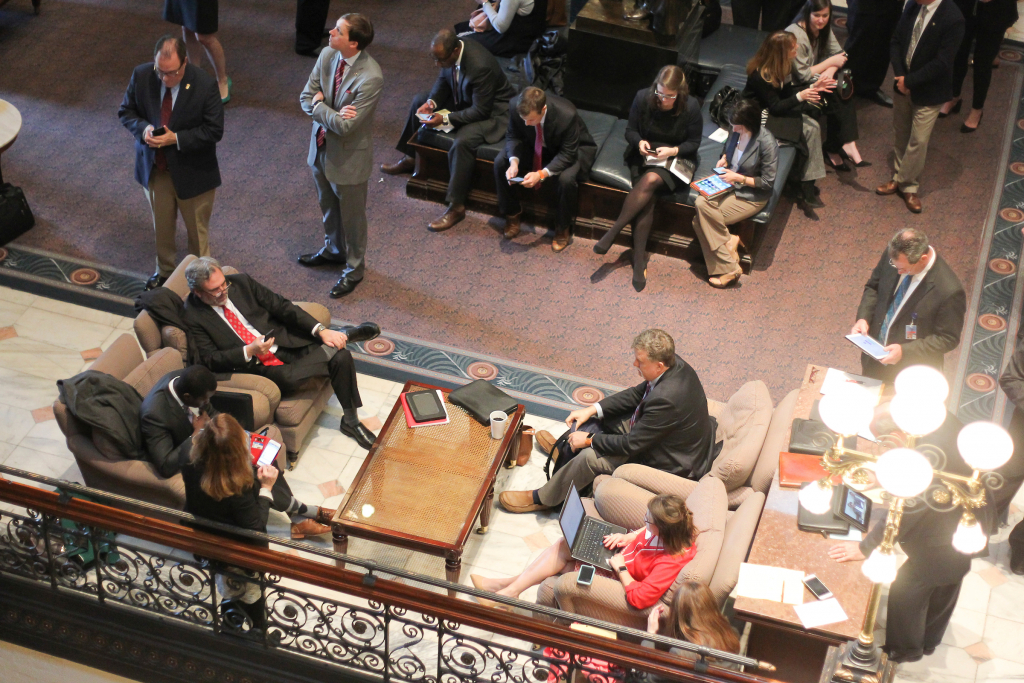A pair of socially conservative lawmakers from the Upstate region of South Carolina have introduced a new academic reform bill – except their proposals have nothing to do with the drumbeat for more funding on behalf of the Palmetto State’s worst-in-the-nation government-run school system.
Their bill – H. 3826 – is all about Christianity, curriculum and class credits, and it comes amid a national debate over the proposed expansion of Bible literacy classes in government-run schools across America.
According to the legislation, which is sponsored by state representatives Dwight Loftis and Mike Burns, parents would be granted sweeping new discretionary authority over the education their children are receiving (or as is too often the case in South Carolina, not receiving).
“The liberty of parents to direct the education of their child is a fundamental right,” reads some of the proposed statutory language contained in the bill. “A school may not infringe on this right without demonstrating that the interest of the school as applied to the person is of the highest order and not otherwise served.”
(Click to view)
(Via Travis Bell Photography)
The legislation goes on to outline expanded “elective” options for religious studies, including “the study of the Christian Bible” as well as a provision that would allow school districts to “require the teaching of various theories concerning the origin of life, including creation science as part of the course content.”
Not surprisingly, that language has secular humanists up in arms …
“The teaching of creation science in the public schools was ruled to be unconstitutional,” wrote Glenn Branch of the National Center for Science Education (NCSE), an Oakland, California-based organization that was formed in 1981 to “prevent creationism from being taught alongside or instead of evolution.”
Loftis and Burns’ bill contains other provisions, too …
Upon written request of a parent, students would also be allowed to receive class credit for religious instruction received outside of the government-run school setting. This instruction would be “conducted by a church, an association of churches, or an association that is organized for religious instruction and incorporated under the laws of this State,” and would not exceed “one hundred twenty minutes in total in any week.”
[su_dominion_video_scb]Finally, the bill would mandate that government-run schools display the motto of the United States – “In God We Trust” – on “durable posters or framed pictures” that are at least “eleven inches in height by seventeen inches in width.”
It even goes so far as to specify the height of the letters on this display.
Interesting …
Our view? We have no issue with the thinking behind this bill … in fact there are parts of it we like a great deal (especially the out-of-classroom credits). Having said that, we have recently gone on record opposing the incorporation of Bible literacy within the government-run school setting – so legislation which provides for it is obviously not something we can endorse.
“With America’s culture wars in full swing – and with government-run schools serving as the front lines (for) all manner of indoctrination – do Christians really want to surrender responsibility over this subject matter?” we wrote last week.
Our view on that point has not changed …
Frankly, we believe this legislation – like the broader “church versus state” argument with respect to taxpayer-funded education – misses the point. Not unlike how the debate over more money for South Carolina’s demonstrably failed government-run school system also misses the point.
Both of these problems could be solved very simply … by allowing more marketplace freedom.
Permitting parents and guardians to take a percentage of soaring per pupil funding amounts doled out by the state – and route that money into new options for their children – would not only solve these nagging constitutional questions, it would create a new education marketplace where parents wouldn’t need a government statute to exercise their “fundamental right.” This marketplace would not only provide choices for those trapped in South Carolina’s many “failure factories,” it would also provide long-overdue accountability for failing government-run schools.
***
WANNA SOUND OFF?
Got something you’d like to say in response to one of our stories? Please feel free to submit your own guest column or letter to the editor via-email HERE. Got a tip for us? CLICK HERE. Got a technical question or a glitch to report? CLICK HERE. Want to support what we’re doing? SUBSCRIBE HERE.
Banner: Getty

